(Qamishli, Syria) - In the darkness of constant power cuts in Qamishli, where children are unable to keep up with their favorite television shows and cartoons, the Sawishka group, an organization for social development, has come up with a new way to entertain children by reviving the tradition of the Hakawati, the figure most akin to an old grandfather who gathers his grandchildren around him to tell them tales from old Kurdish legends.
The group’s organizers say that the goal of this activity is to provide children with some relief from the boredom, anxiety, and fear due to the ongoing war in Syria.
Damascus Bureau correspondent Bakhtiar Hassan (not his real name) listened to the Hakawati’s story and took these photos on February 14, 2014.
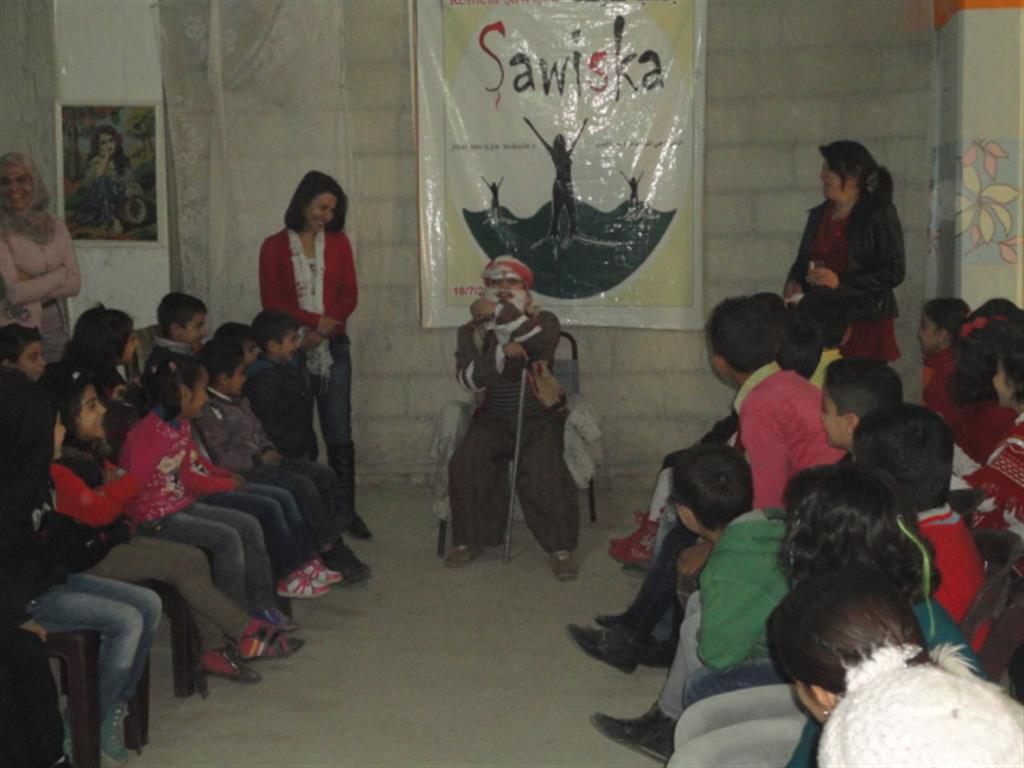
The Hakawati regales the children with the tale of the prince, the princess and the sorceress, taken from popular Kurdish legend.
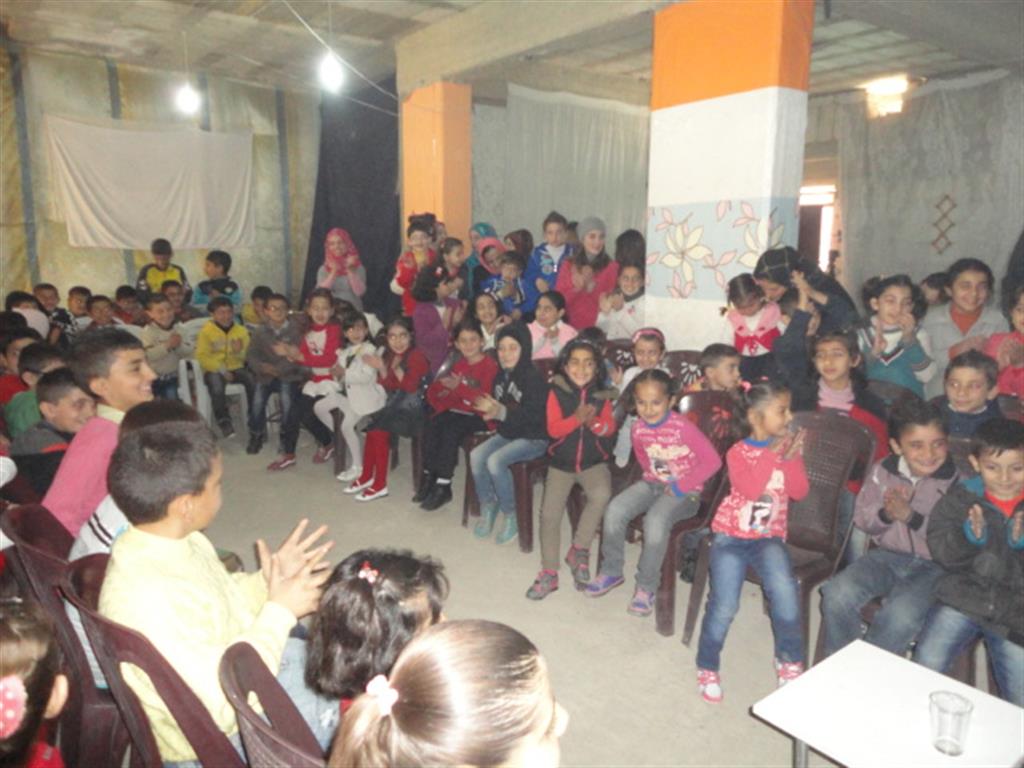
The children applaud eagerly when the Hakawati finishes her tale with the marriage of the prince and princess and the death of the evil sorceress.
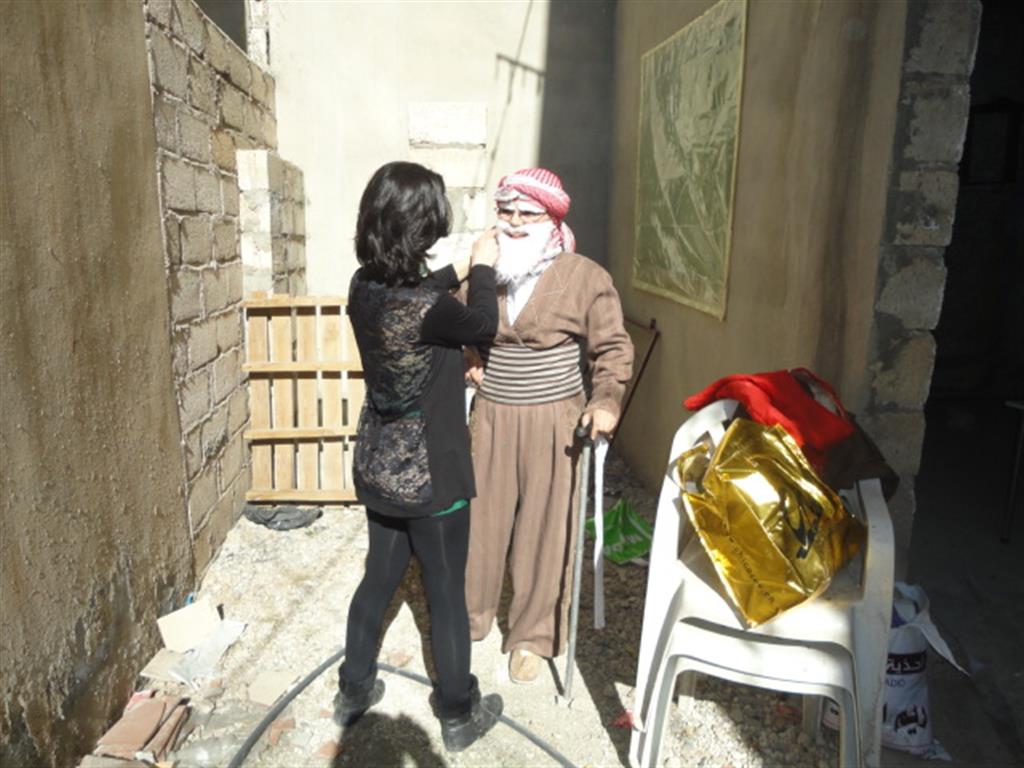
The final touches are placed on the Hakawati’s appearance, in keeping with the traditional folkloric costume, minutes before she enters the stage.
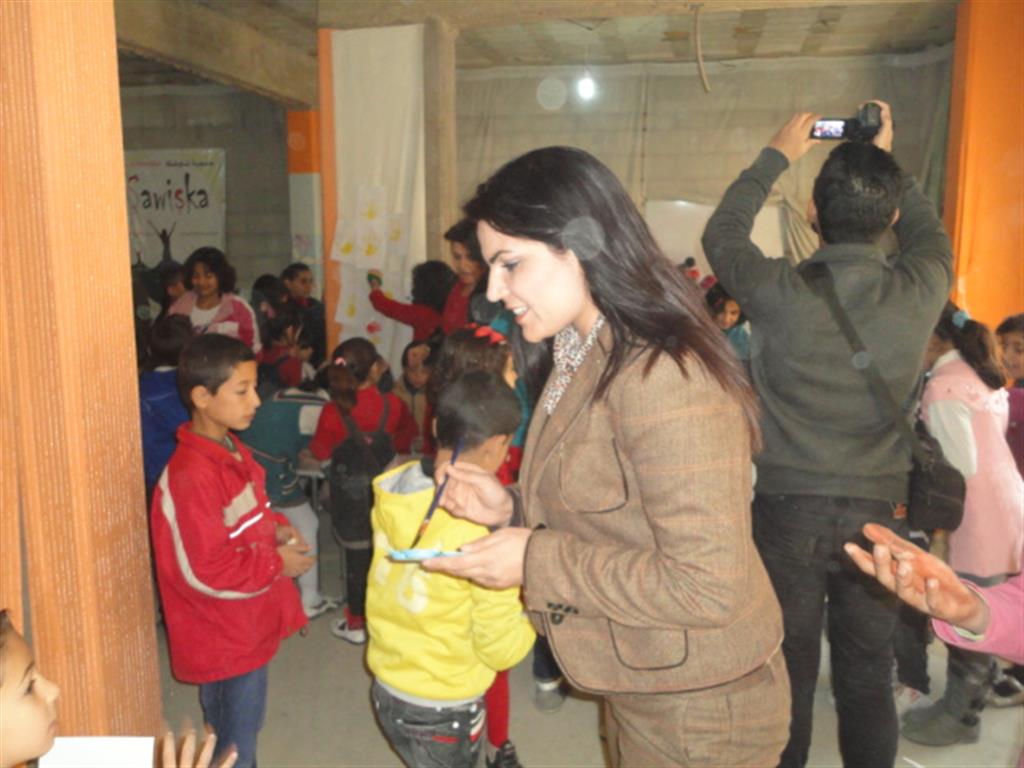
Aheen, before she dons the Hakawati costume.
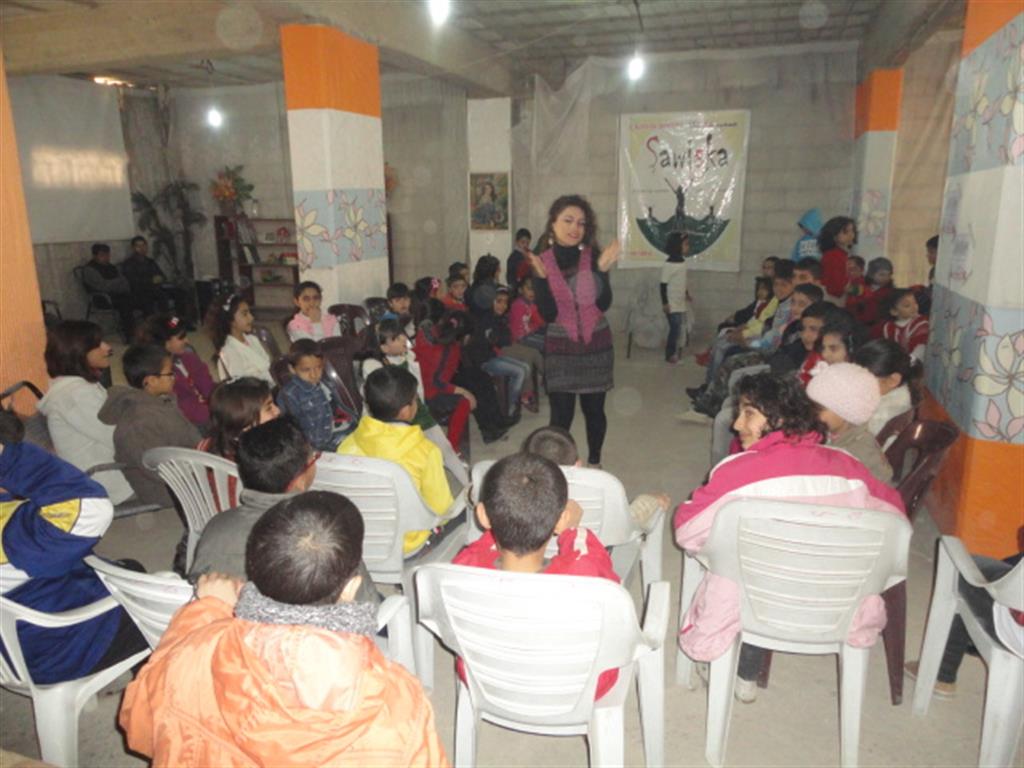
One of the members of Sawishka sings to the children before the beginning of the Hakawati’s tale.
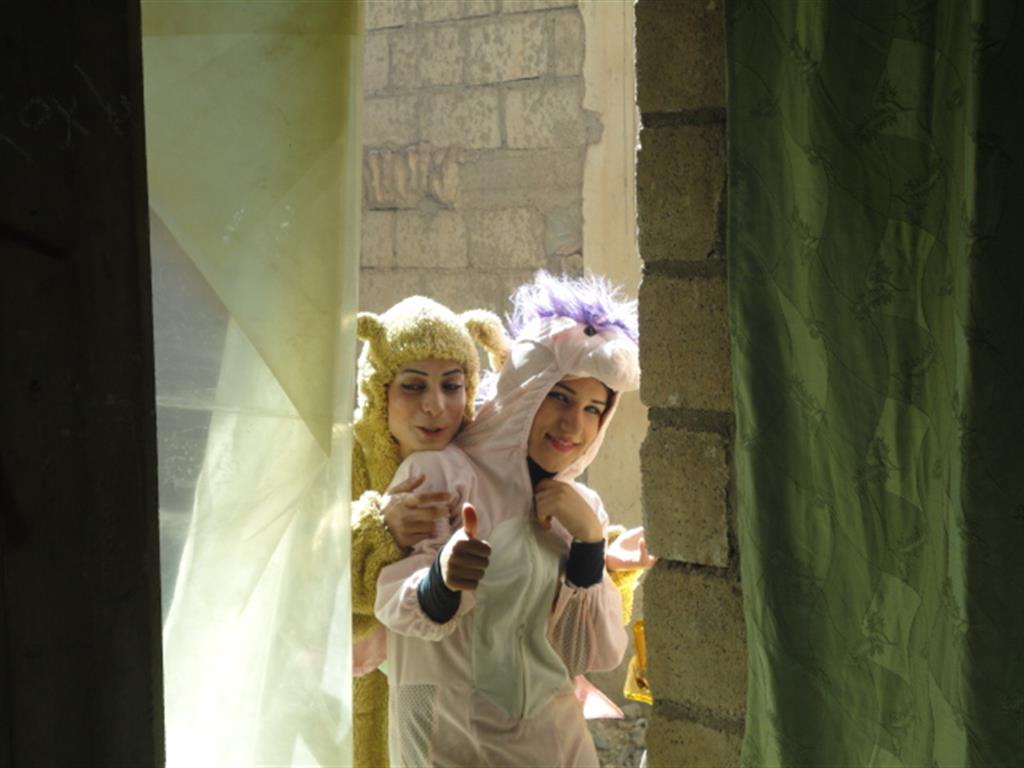
A rabbit and a bear just before beginning of their portion of the night’s entertainment.
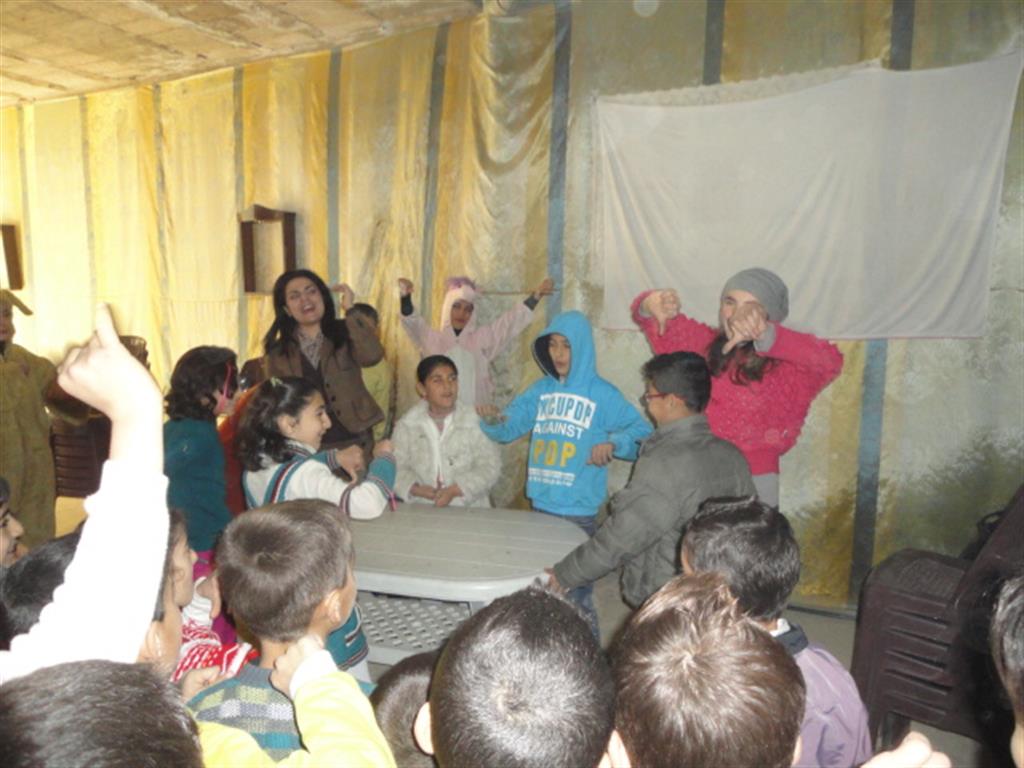
After the end of the Hakawati’s tale, there were games and musical performances for the children.
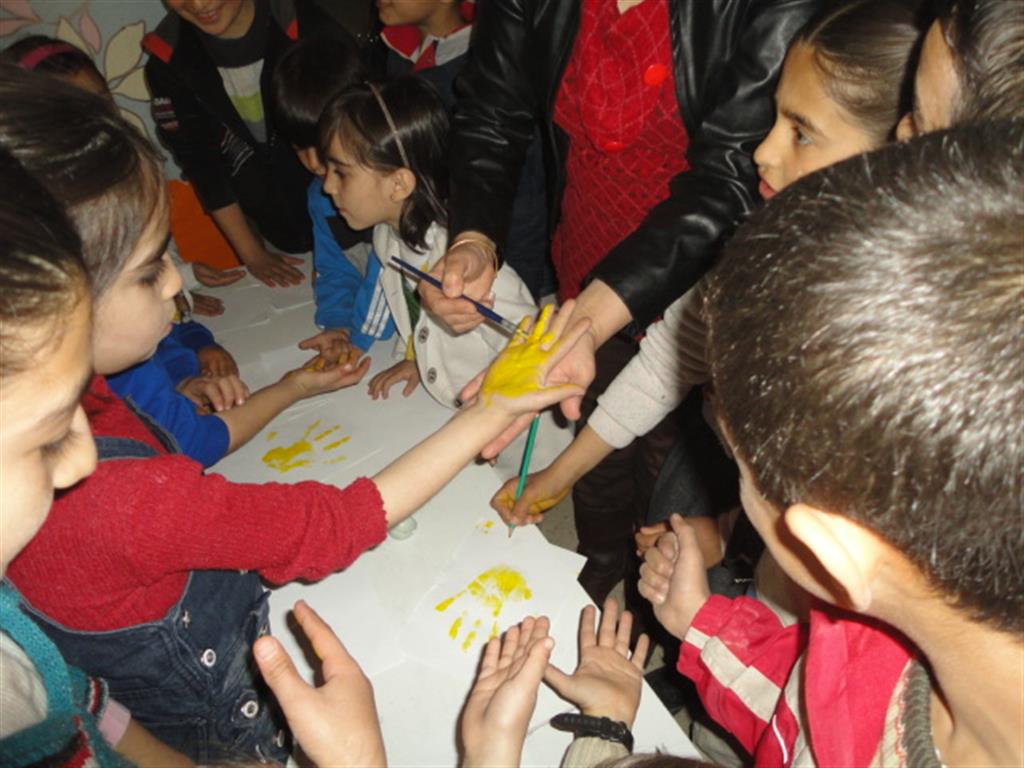
Finger painting was another one of the evening’s highlights.
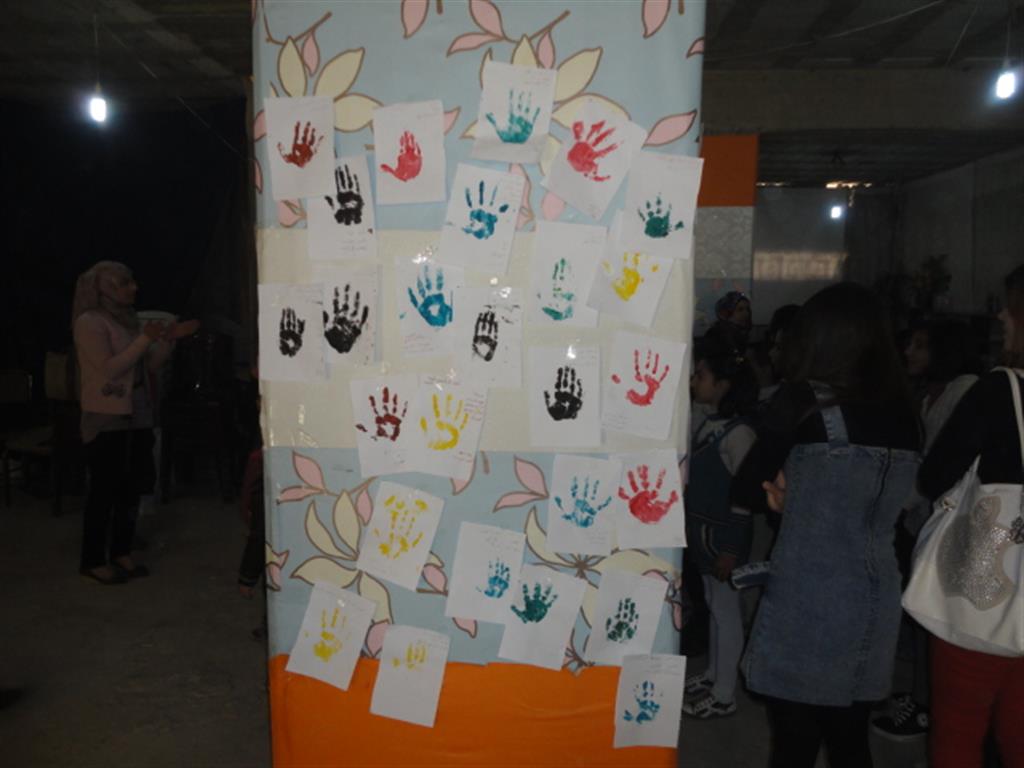
It is certain that the evening, organized by Sawishka, will leave an imprint on the children as bright and uplifting as these palm prints.
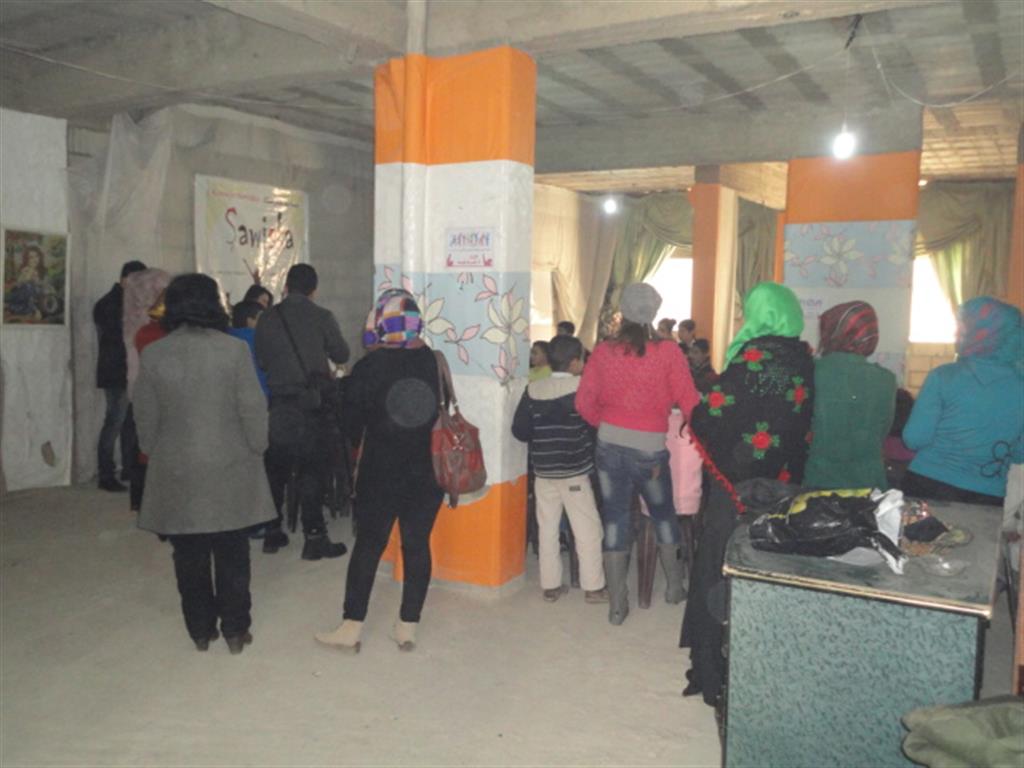
Mothers look on as their children join in on the festivities.
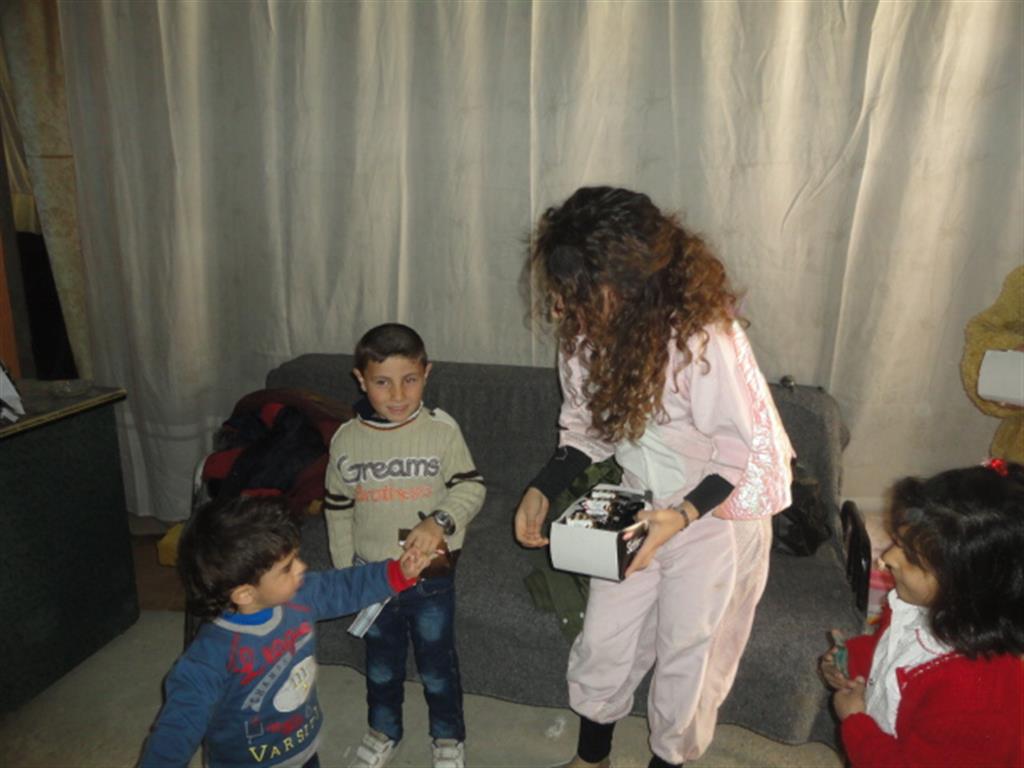
One of the group members distributes sweets to the children at the close of the festivities.
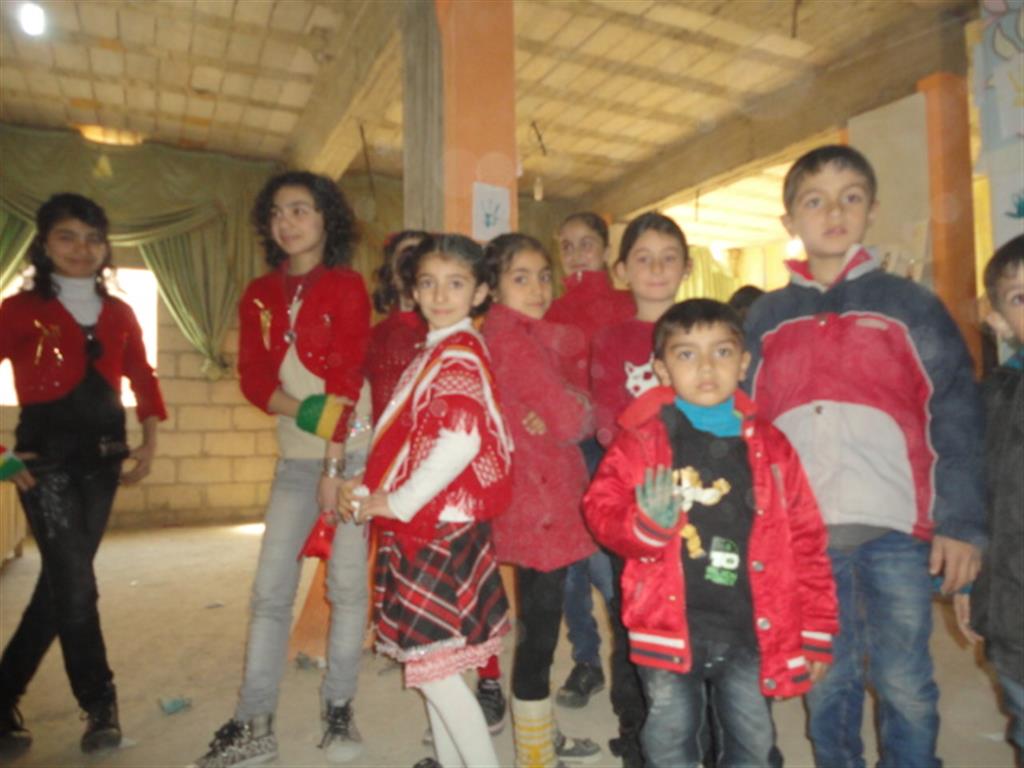
The children as they leave the group’s headquarters.
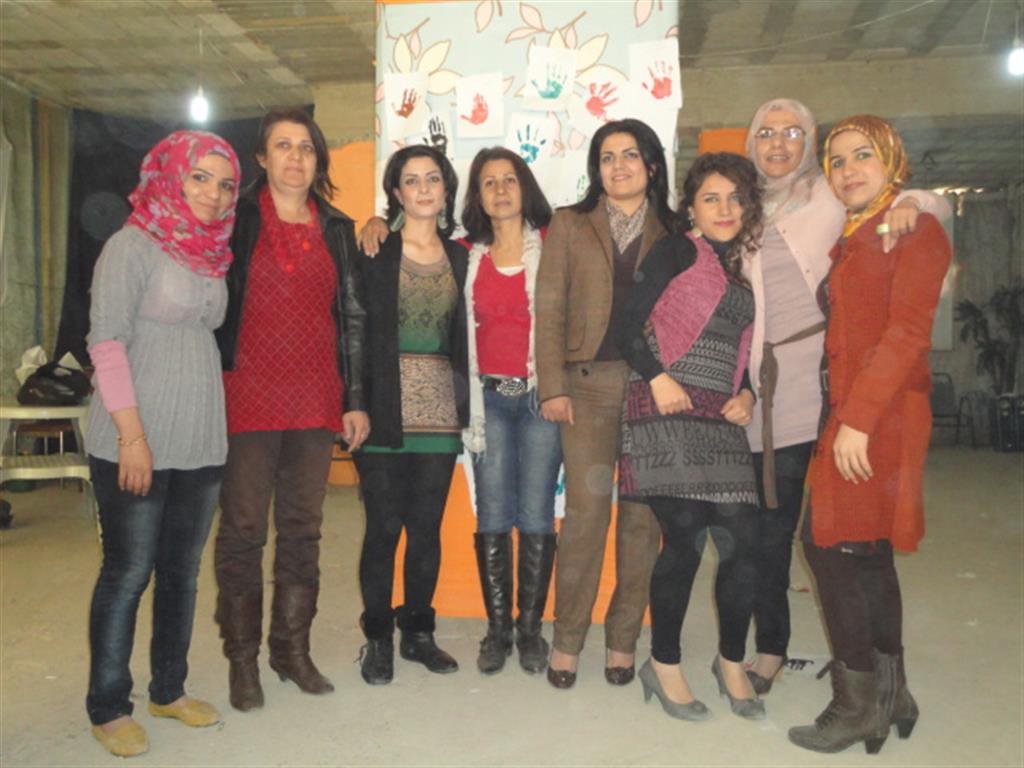
Sawishka group members at the close of the evening, after the children have left.


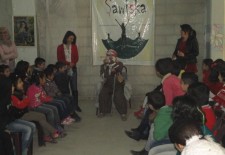

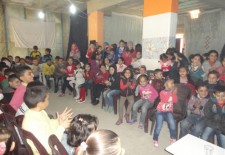

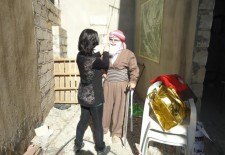

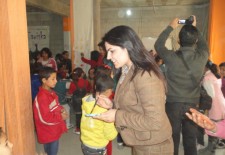

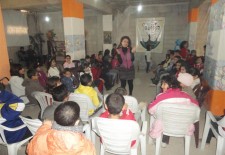

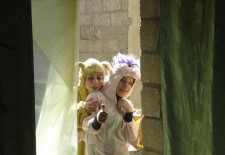

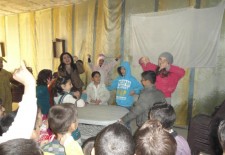

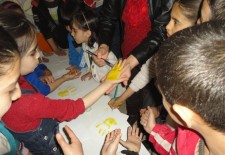

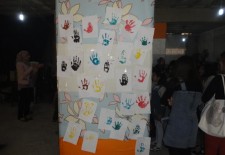

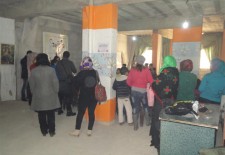

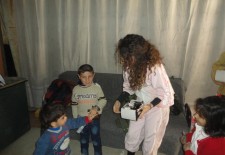

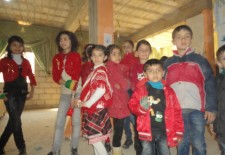

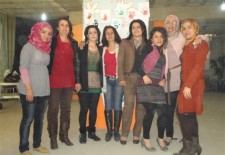


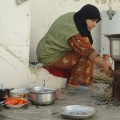



Social